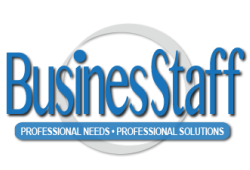Ability to Work from Home:
Even companies that were resistant to the concept of a distributed workforce have been forced to allow working from home, so work can still be done while taking precautions to halt the spread of the virus. According to a survey by Workhuman, only a third of people in the United States worked for home before the pandemic. Twitter and other large organizations encouraged their employees to work from home, and other companies such as Google and JPMorgan were building remote working policies in the event they needed to shift work home.
While the ability to work from home is a benefit many employees value, many companies lack the technology infrastructure structure to offer that capability without some sacrifices to "business as usual." However, one unexpected outcome of COVID-19 is that companies realize the benefits of fast-tracking digital transformation.
When many Chinese cities went under lockdown as COVID-19 spread, government and many companies encouraged millions to stay at home, which had them experiencing the joys and turmoil of working from home. Generally, Chinese companies were set up with appropriate technology to allow working from home, but many company cultures were not.
While some companies will eventually go back to rigid work-in-office policies, it's expected that some will realize the benefits to employees and that in fact, it can be done effectively. If nothing else, they will have valuable experience about what is needed and how to accommodate work-from-home needs in the future when it's required again due to another outbreak or other reasons.
Telehealth:
Before the COVID-19 outbreak, there was some progress made in telemedicine; however, public health officials are pushing healthcare systems to expand their telemedicine through smartphones and other tools.
Technology can assist in triaging patients and in diagnosing those without the illness but are worried they might have it from seeking treatment at overcrowded facilities by talking to them through telehealth technology. And, using telemedicine limits human-to-human contact, critically important to slow the transmission. There are certainly many advantages to telehealth but also challenges that need to be overcome. Healthcare systems are being forced to address them sooner rather than later with COVID-19. In fact, a bill for coronavirus funding in the U.S. Congress waives the rules that usually restrict video services for people on Medicare, a move that really emphasizes the potential for telehealth in not only this current outbreak but in the future.
Remote Learning:
As COVID-19 spread throughout countries, schools and universities began to turn to virtual learning options. Many universities decided to switch the rest of the semester’s work to online learning only and some closed campuses to contain spread of the virus. While many universities had experience with virtual learning such as Harvard Business School Online and were better prepared for the shift, the majority of education organizations are not really set up for online classes.
There are some K-12 institutions that are going virtual, leaving teachers and administrators to ensure that all kids have access to the technology and tools they need to keep learning from home. The transition to digital education is certainly disruptive as it wasn't planned for in the timeline the coronavirus dictated, but the educators and educational institutions will be better prepared in the future.
In China, New Oriental Educations & Technology Group and interactive streaming platform Agora.io collaborated to quickly get digital platforms running in China under a tight timeline so education could continue as soon as possible.
Events Going Virtual:
Along with many in-person conferences being canceled worldwide in response to the COVID-19 outbreak, some are switching them to be virtual events. The first conference to cancel due to safety concerns was Mobile World Congress, the annual gathering of electronics makers. Google Cloud Next ’20 became Digital Connect and promised that what once was a three-day conference to be a “free, global, digital-first, multi-day event” that would use the Next ’20 content. Collison, the fastest-growing tech conference in North America, was another conference that turned to virtual as Collison from Home—the in-person event got postponed to June 2021. I am currently making arrangements to film my keynote for the SAS Global Forum, which has gone virtual because of the coronavirus, so that people can watch it virtually.
Conferences are a trillion-dollar industry and have been a critical way to exchange ideas and build professional relationships. Some companies are trying to bridge the gap between in-person events and virtual ones with platforms that combines video, networking, and more to try to capture the benefits of networking at an in-person event and the content and tech of virtual tools.
The virus outbreak has pushed conference organizers and business owners to think outside the box to provide compelling alternative options in the interest of public safety. This push could also result in innovations for the future with how people meet and interact better virtually.
Technology:
Remote working—and learning—is easier for all with cloud meeting and team collaboration tools such as Tencent’s WeChat Work or Alibaba-owned DingTalk. In response to the COVID-19 pandemic, many technology companies are rolling out tools that can support companies and organizations when going remote for extended trial periods or for lower fees. Here are a few:
- Google is allowing free access to advanced features that normally have a fee every month for Hangouts Meet to all G Suite and G Suite Education customers for several months.
- Microsoft offered a free six-month trial of its top tier of Microsoft Teams to enable schools, hospitals, and businesses in China to keep operating even with the restrictions of coronavirus.
- U.S.-based video-conferencing provider Zoom saw its stock price rise during the crisis; clearly people are seeing the value of remote-working tools. Zoom lifted the 40-minute limit from its free Basic plan for China when coronavirus hit the country. Doctors in China from more than 1,000 hospitals used the service for online consultations.
- LogMeIn is offering healthcare providers, educational institutions, non-profit organizations access to its video conferencing tools, including GoToMeeting and GoToWebinar.
- Cisco is fortifying its Webex tool to properly support companies during the coronavirus in the 44 countries its available in, including offering 24/7 assistance for businesses using the tool.








 RSS Feed
RSS Feed